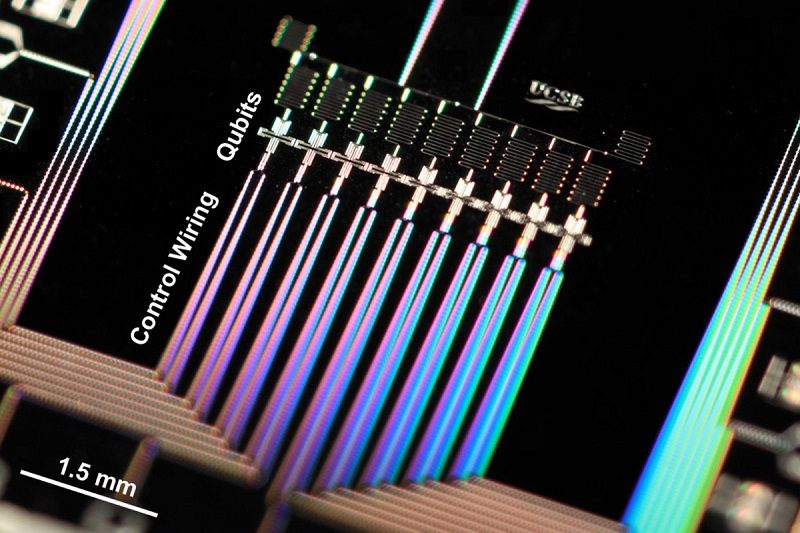Google Expects Quantum Computer Breakthrough This Year
Ashley Allen / 8 years ago

Quantum computing could become a reality by the end of 2017, thanks to Google’s latest advancements. Google is currently testing a 20-qubit processor, which is impressive enough. But the Alphabet company hopes to have a functioning 49-qubit processor the end of the year.
What is Quantum Computing?
A quantum computer relies on the physical principles of superposition and entanglement. A superposition is a state in which a particle can exist in two (or more) states at the same time. Entanglement describes a physical phenomenon where particles affect each other’s quantum state. For a primer, see Schrödinger’s Cat. Therefore, a quantum bit (qubit) can exist as both 1 and 0 simultaneously. This property allows a qubit to process more information – and using less energy – than a classical computer.
Google’s Quantum Breakthrough
Last July, Google published a paper in which it targeted the creation of a 49-qubit quantum computer by 2018. Google is close to achieving that goal, the company claims. According to New Scientist’s Matt Reynolds:
“Alan Ho, an engineer in Google’s quantum AI lab, revealed the company’s progress at a quantum computing conference in Munich, Germany. His team is currently working with a 20-qubit system that has a “two-qubit fidelity” of 99.5 per cent – a measure of how error-prone the processor is, with a higher rating equating to fewer errors.
For quantum supremacy, Google will need to build a 49-qubit system with a two-qubit fidelity of at least 99.7 per cent. Ho is confident his team will deliver this system by the end of this year. Until now, the company’s best public effort was a 9-qubit computer built in 2015.”
Dawn of the Quantum Age?
While we’re getting closer to functional quantum computers, we’re not there yet. Reynolds reports:
“It is important not to get carried away with numbers of qubits, says Michele Reilly, CEO at Turing Inc, a quantum start-up. It’s impossible to really harness the power of these machines in a useful way without error correction, she says – a technique that mitigates the fickle nature of quantum mechanics.”
Despite Google’s quantum computing achievements, we are still a way off from the technology breaking out of the laboratories. Ho predicts that error-corrected quantum computers will not be a reality until at least 2027.



















